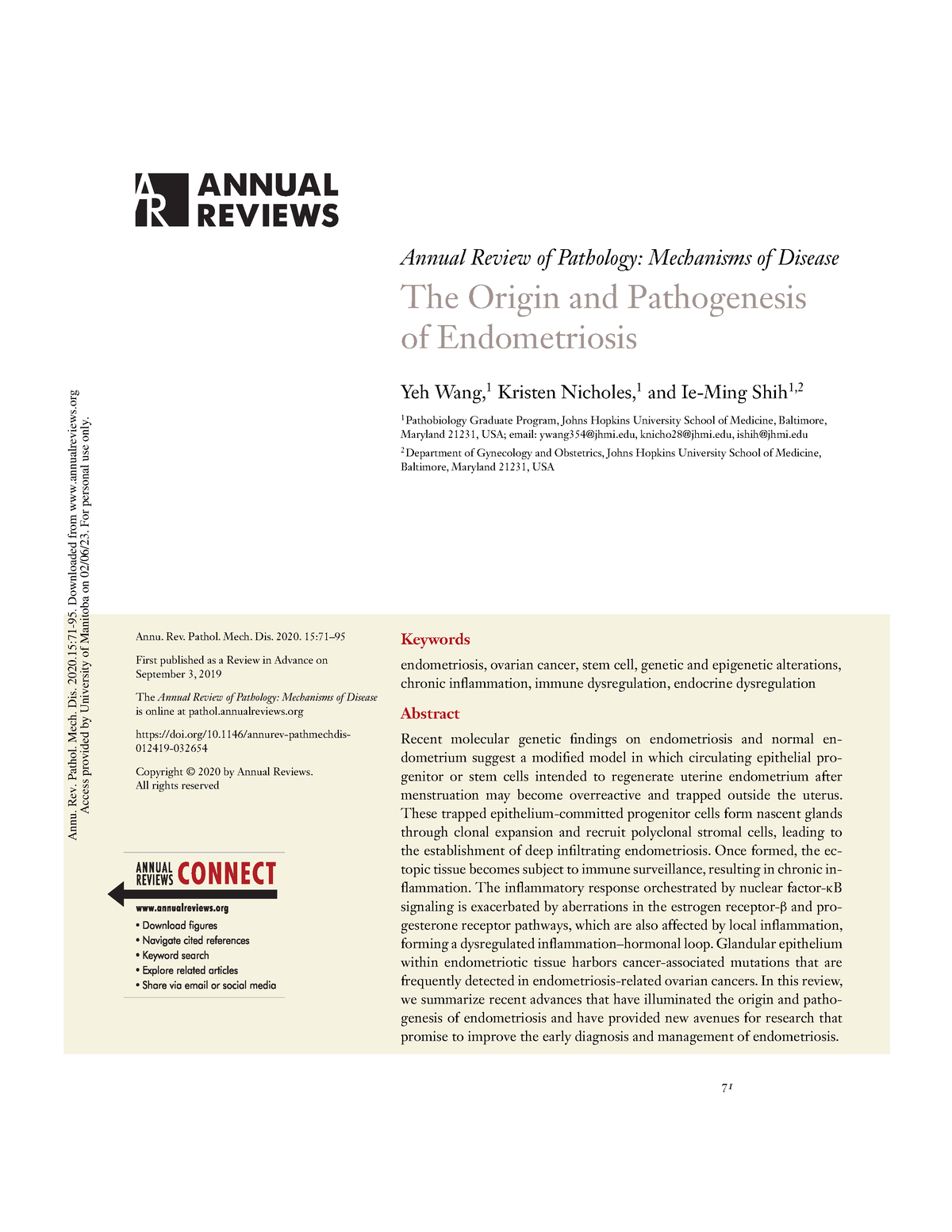Targeting Genome Stability to Mitigate Human Aging and Disease.
IF 34.5
1区 医学
Q1 PATHOLOGY
Annual Review of Pathology-Mechanisms of Disease
Pub Date : 2025-10-14
DOI:10.1146/annurev-pathmechdis-042624-105942
引用次数: 0
Abstract
The maintenance of a stable genome requires constant repair. Congenital DNA repair defects lead to cancer susceptibility and progeroid (premature aging-like) syndromes. Even with intact repair, DNA lesions accumulate in aging organisms, leading to replication and transcription stress and age-dependent somatic mutations. These, in turn, can compromise cellular function and elevate cancer risk. DNA damage response (DDR) mechanisms can lead to cellular death and senescence, and targeting the DDR has emerged as therapeutic strategy not only in cancer but also to protect from age-associated phenotypes. Inhibiting DNA repair can promote cancer cell death. Eliminating senescent cells may alleviate proinflammatory consequences on their tissue environment. Moreover, strategies to limit DNA damage and augment repair in normal cells are in active development. Here, we review emerging concepts for targeting genome maintenance mechanisms to lower cancer risk and lengthen healthy lifespan by extending the integrity and functionality of somatic genomes.靶向基因组稳定性减缓人类衰老和疾病。
维持一个稳定的基因组需要不断的修复。先天性DNA修复缺陷导致癌症易感性和类早衰综合征。即使修复完好,DNA损伤也会在衰老的生物体中积累,导致复制和转录压力以及与年龄相关的体细胞突变。这些反过来又会损害细胞功能,增加患癌症的风险。DNA损伤反应(DDR)机制可导致细胞死亡和衰老,靶向DDR已成为一种治疗策略,不仅可以治疗癌症,还可以预防与年龄相关的表型。抑制DNA修复可促进癌细胞死亡。消除衰老细胞可以减轻其组织环境的促炎后果。此外,限制DNA损伤和增强正常细胞修复的策略正在积极发展中。在这里,我们回顾了新兴的基因组维持机制的概念,通过延长体细胞基因组的完整性和功能来降低癌症风险和延长健康寿命。
本文章由计算机程序翻译,如有差异,请以英文原文为准。
求助全文
约1分钟内获得全文
求助全文
来源期刊
CiteScore
62.60
自引率
0.00%
发文量
40
期刊介绍:
The Annual Review of Pathology: Mechanisms of Disease is a scholarly journal that has been published since 2006. Its primary focus is to provide a comprehensive overview of recent advancements in our knowledge of the causes and development of significant human diseases. The journal places particular emphasis on exploring the current and evolving concepts of disease pathogenesis, as well as the molecular genetic and morphological changes associated with various diseases. Additionally, the journal addresses the clinical significance of these findings.
In order to increase accessibility and promote the broad dissemination of research, the current volume of the journal has transitioned from a gated subscription model to an open access format. This change has been made possible through the Annual Reviews' Subscribe to Open program, which allows all articles published in this volume to be freely accessible to readers. As part of this transition, all articles in the journal are published under a Creative Commons Attribution (CC BY) license, which encourages open sharing and use of the research.

 求助内容:
求助内容: 应助结果提醒方式:
应助结果提醒方式:


